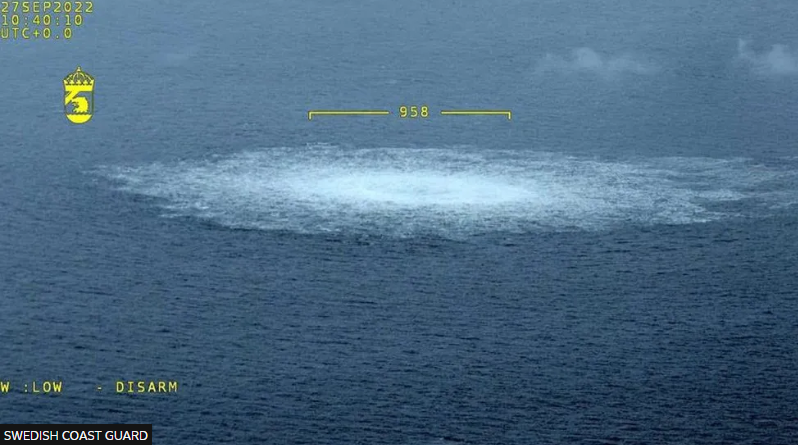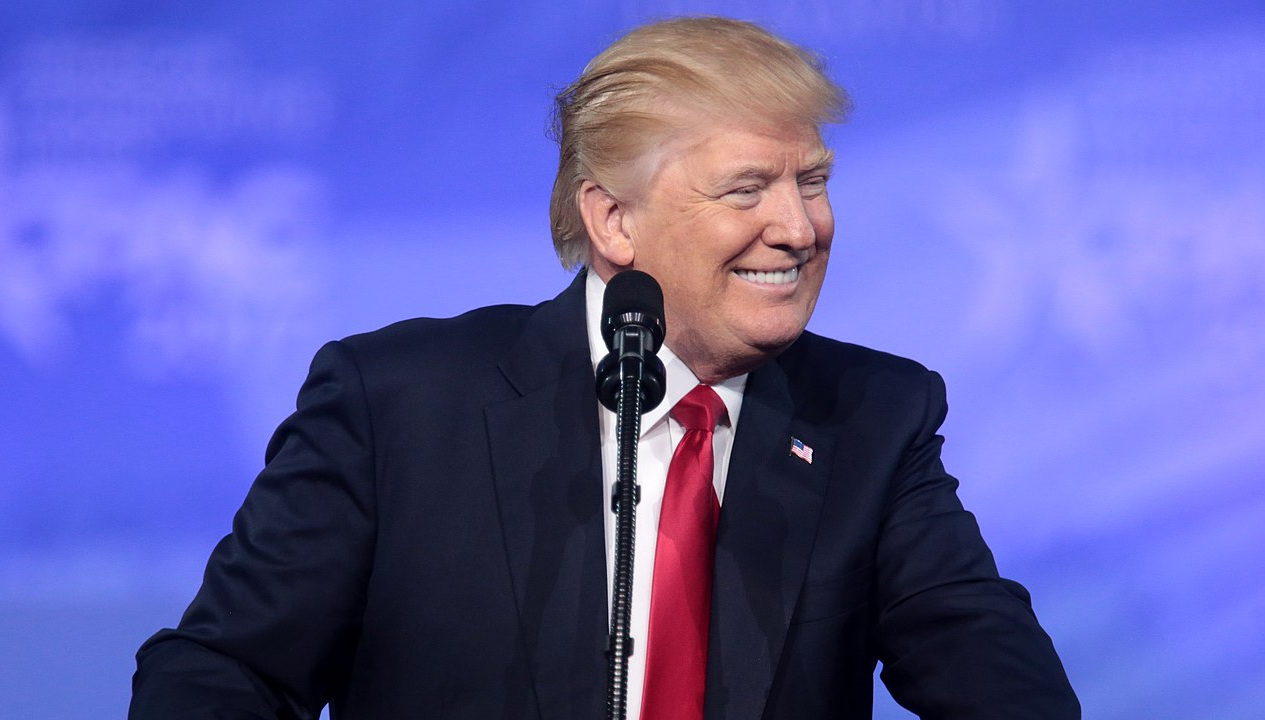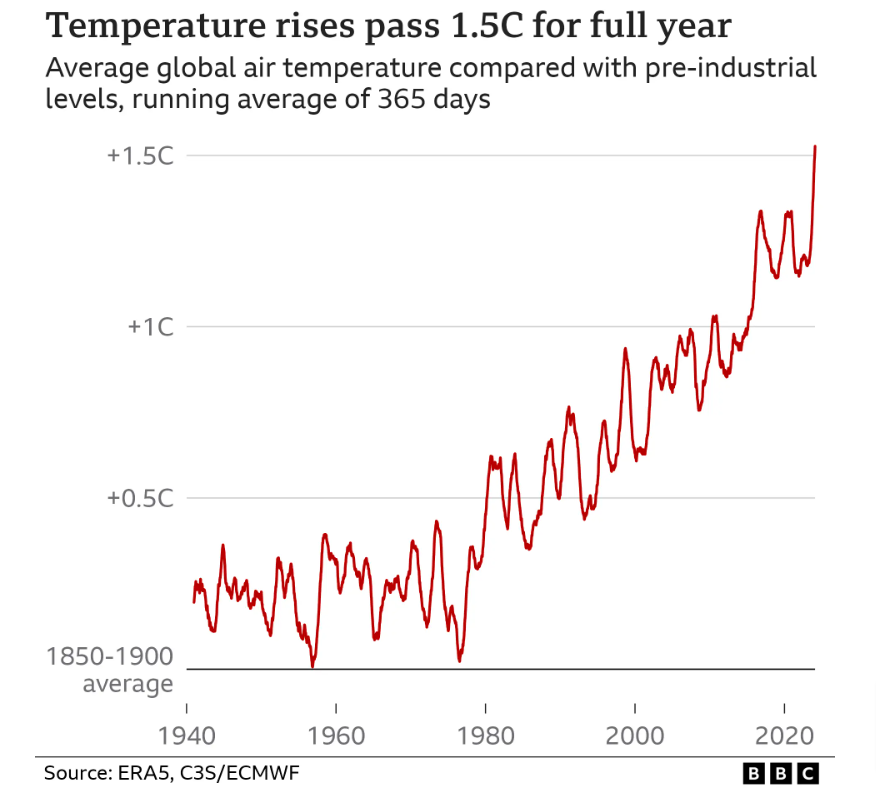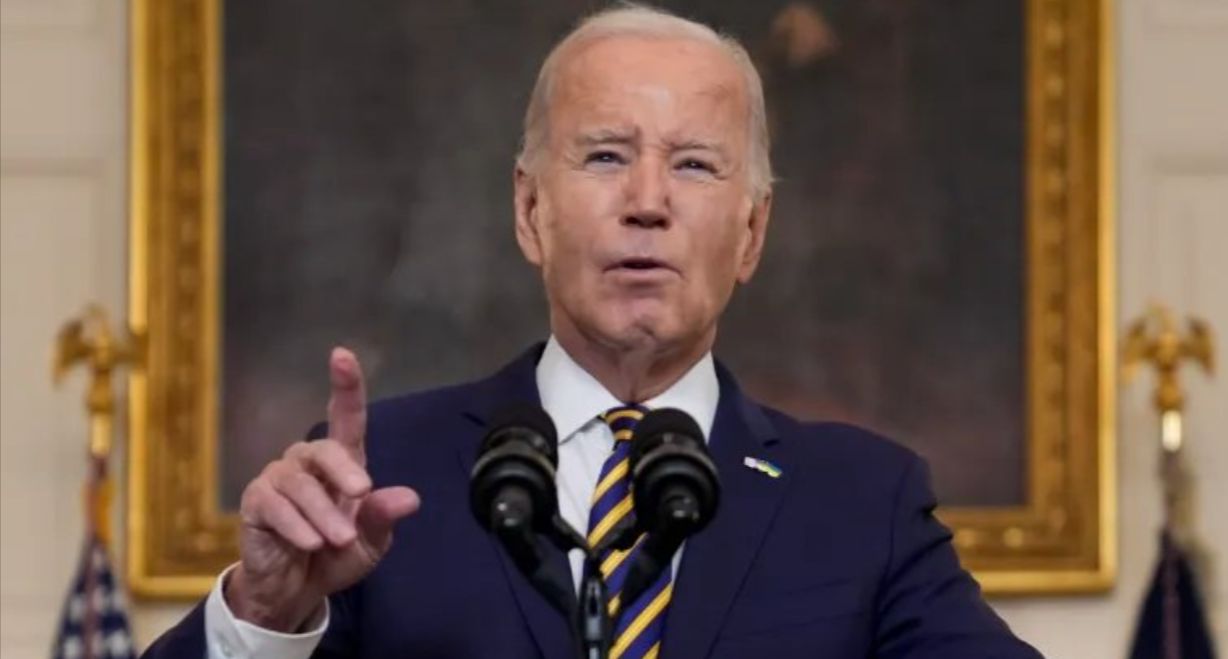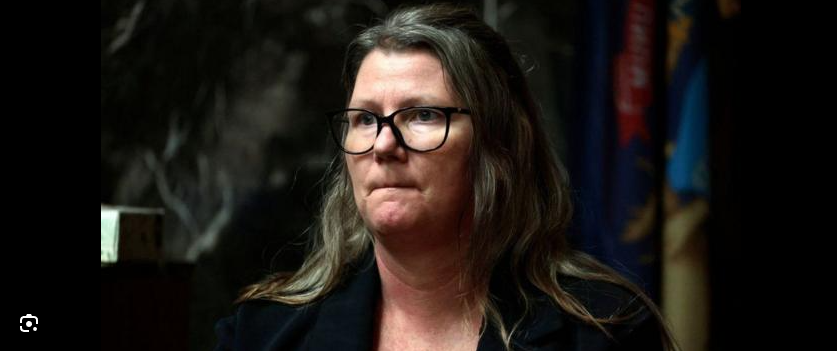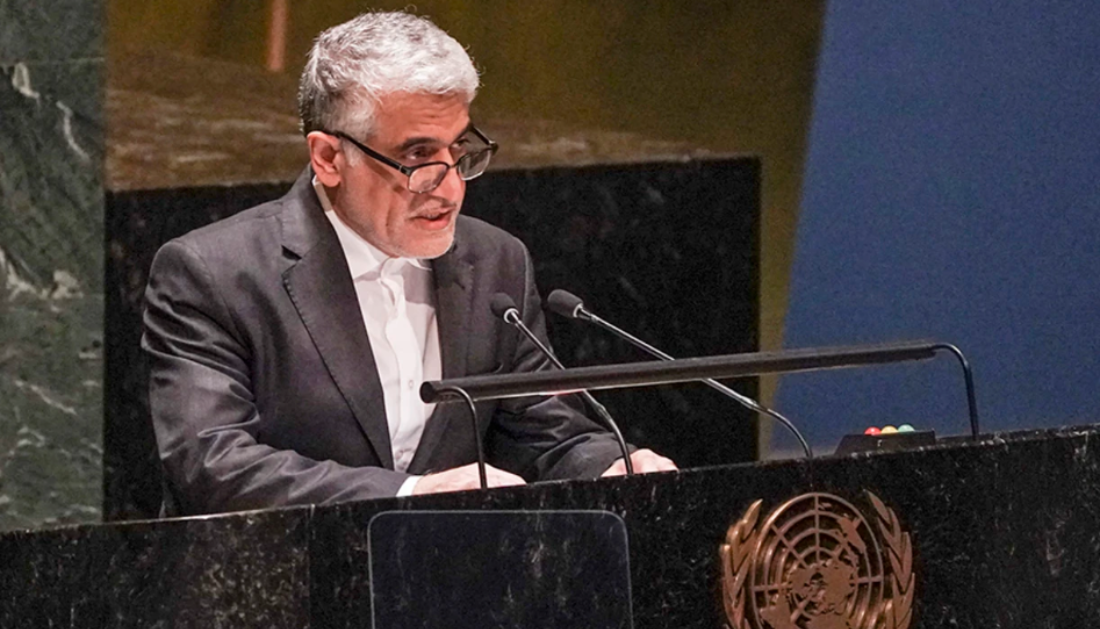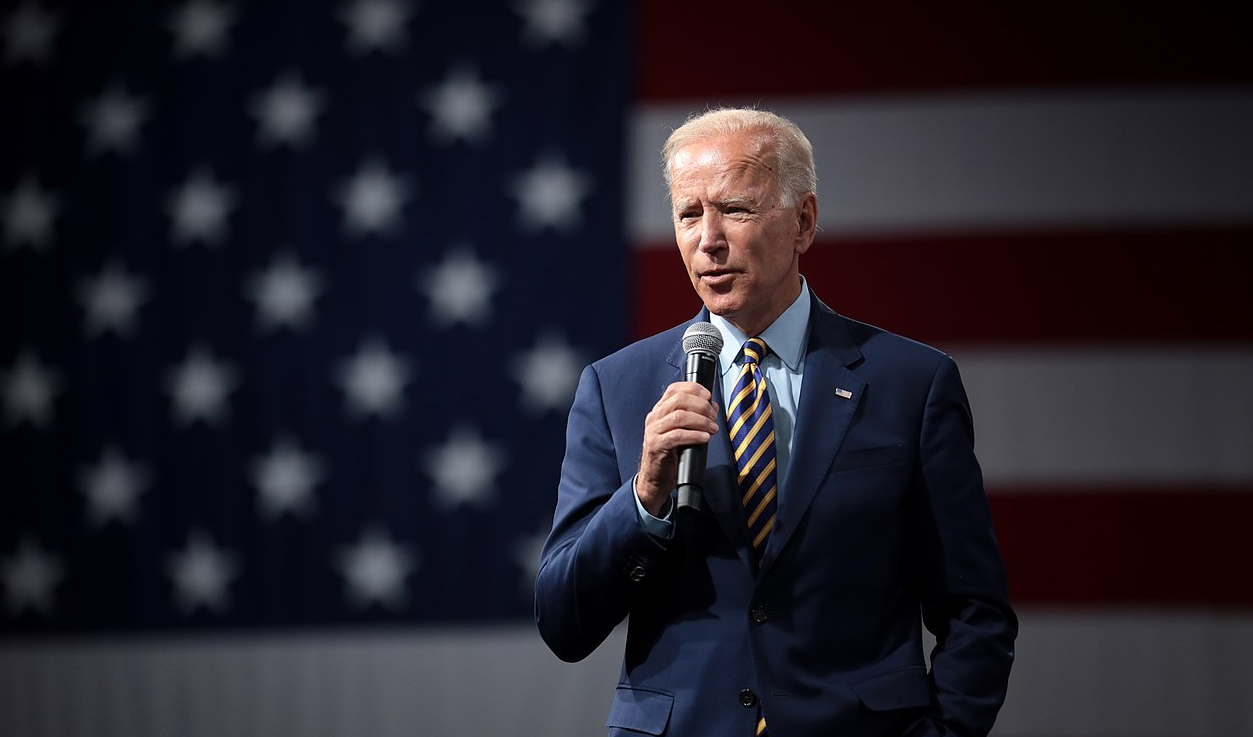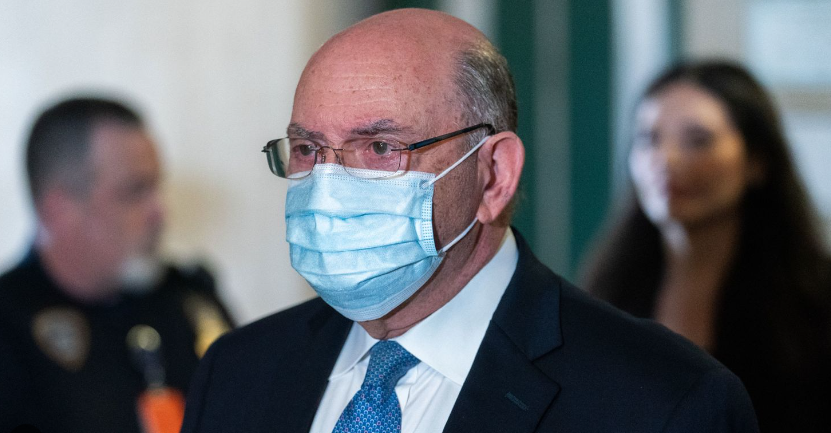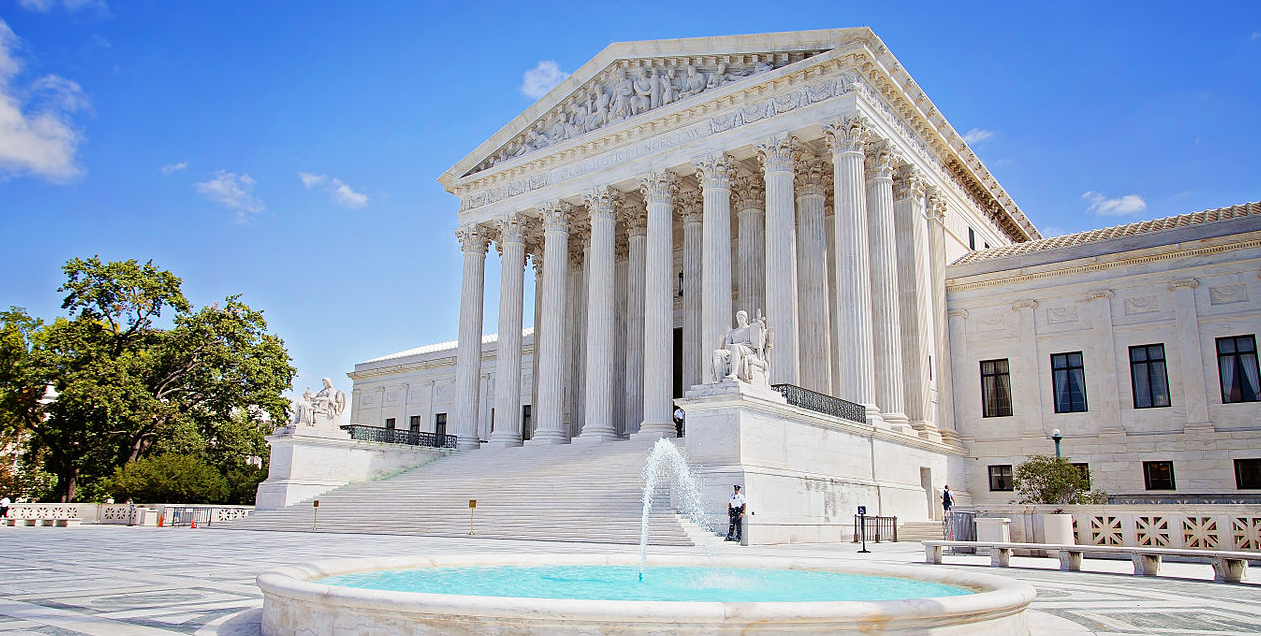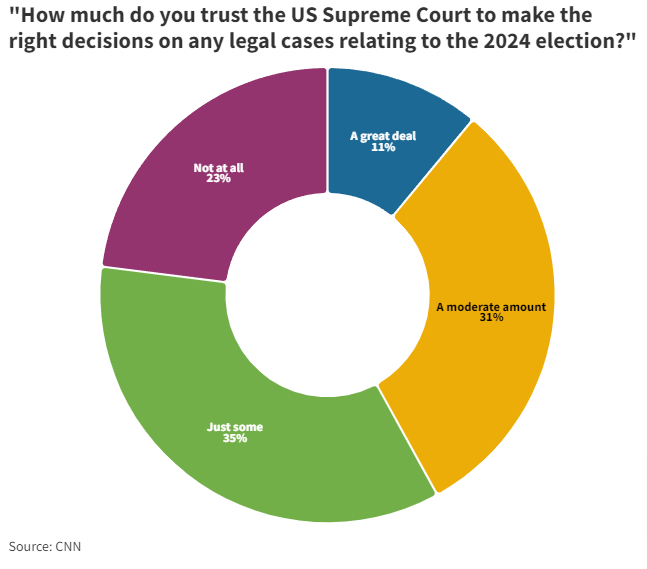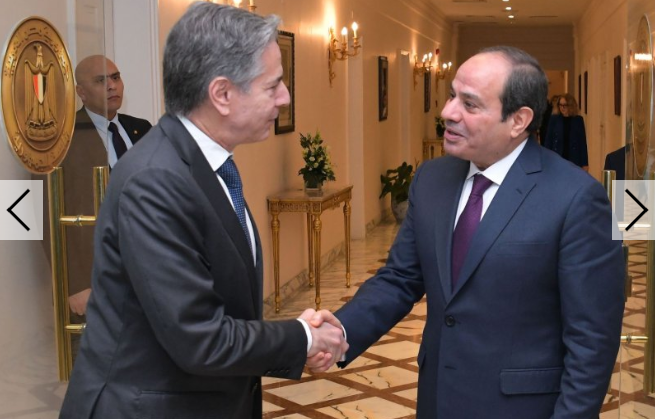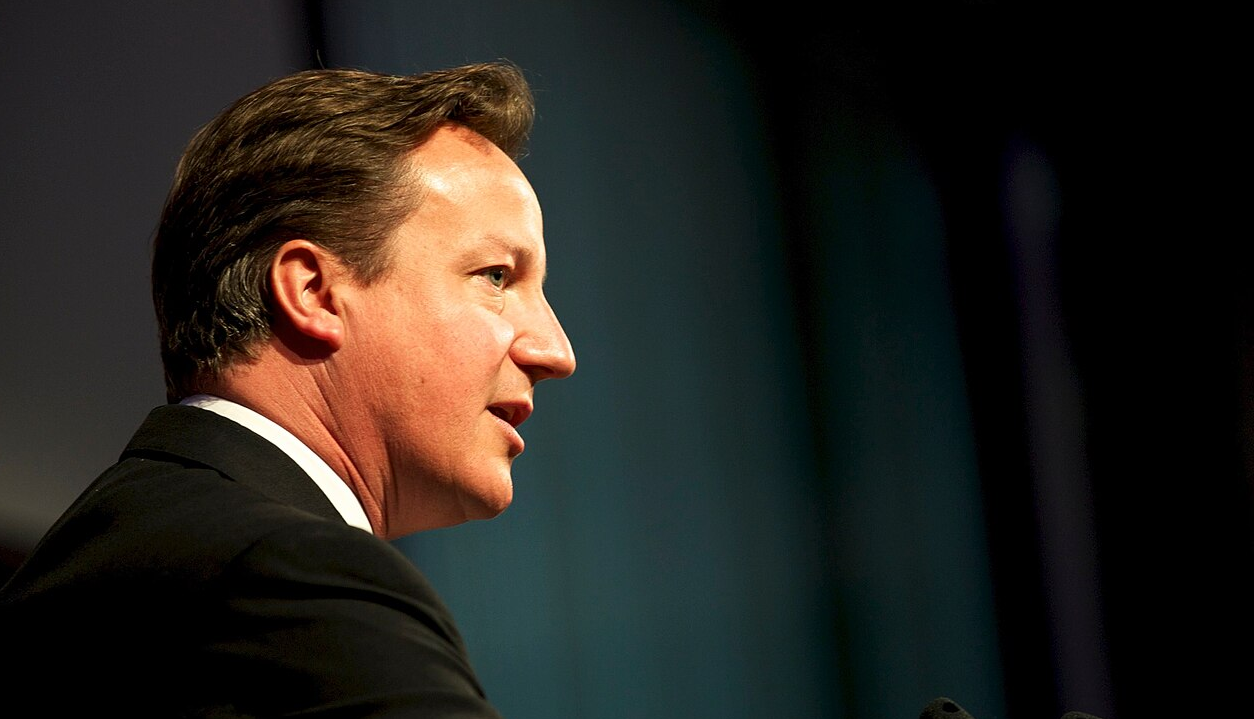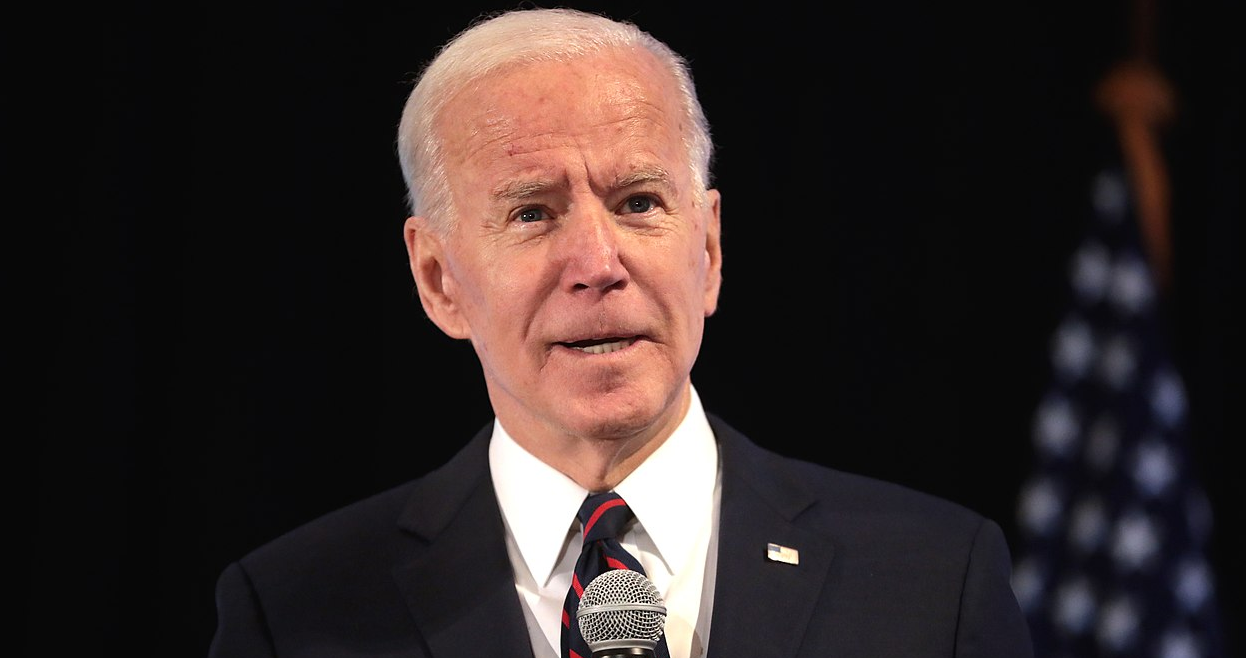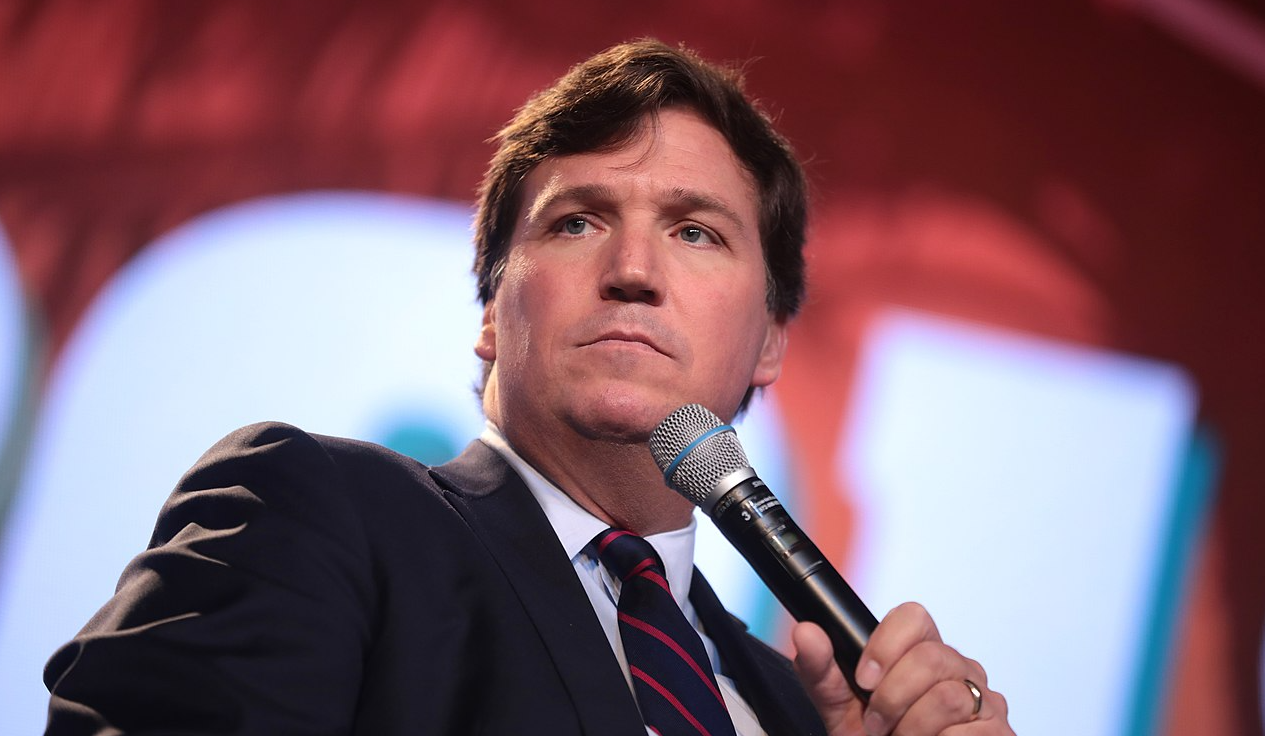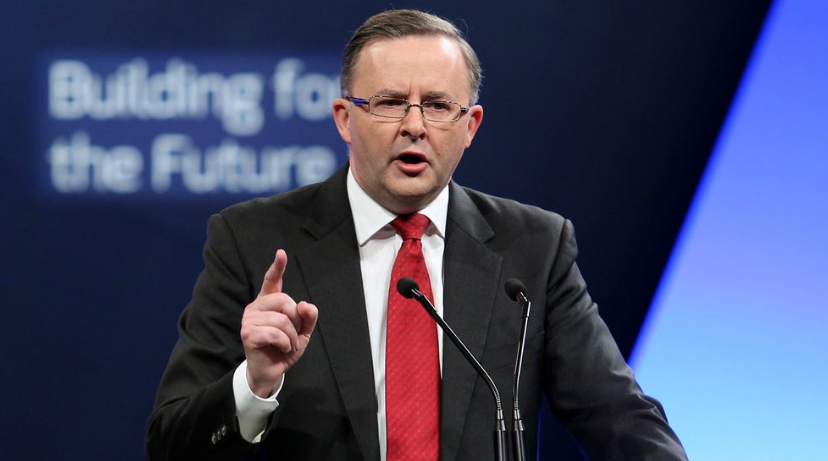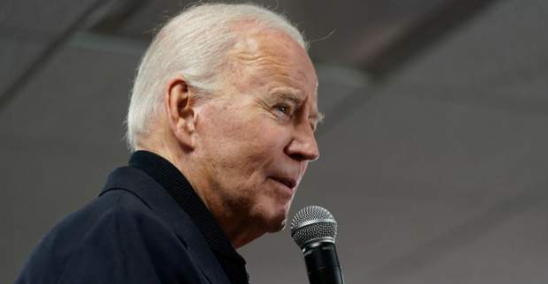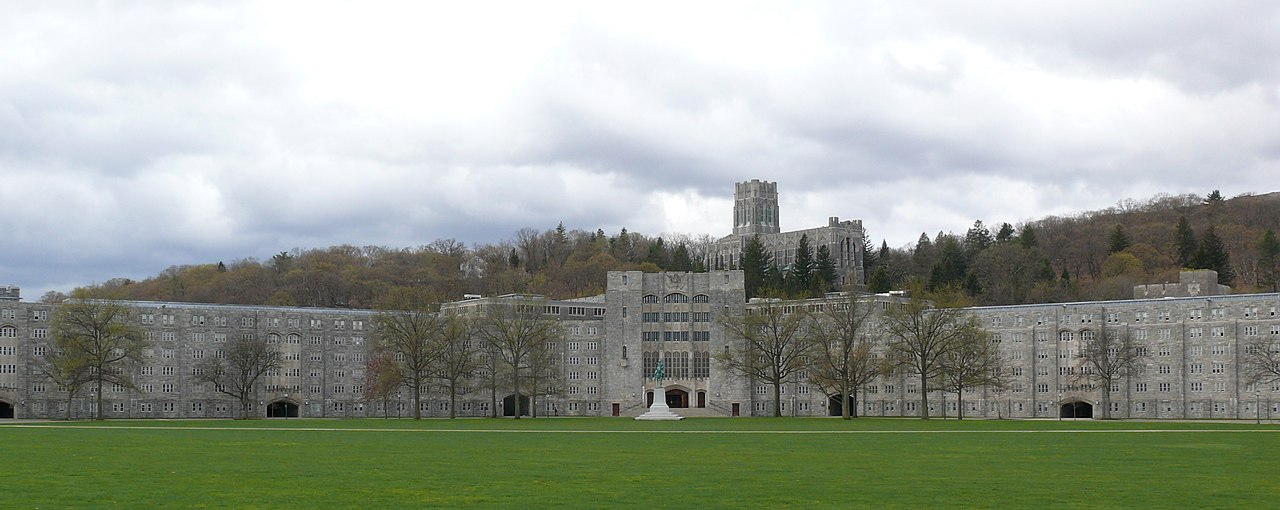-
Posts
10,051 -
Joined
-
Last visited
Content Type
Events
Forums
Downloads
Quizzes
Gallery
Blogs
Everything posted by Social Media
-
Sweden's public prosecutor has decided to close the investigation into the mysterious underwater explosions that destroyed two pipelines transporting Russian gas to Germany. After 16 months of probing, the inquiry into the Nord Stream 1 and 2 blasts, which occurred in September 2022, has been terminated due to limitations in Swedish jurisdiction. Prosecutor Mats Ljungqvist clarified that the investigation's primary objective was to determine if any Swedes were involved or if Swedish territory had been utilized in the attacks. However, he concluded that Swedish jurisdiction did not apply to the case, leading to the closure of the inquiry. Although Swedish authorities have ceased their investigation, German and Danish authorities continue to pursue leads into the explosions that targeted three out of four gas lines near the island of Bornholm in the Baltic Sea. The decision by Swedish prosecutors may indirectly aid the German inquiry if the Swedish Security Service (Sapo) has uncovered additional information, which they have reportedly shared with other countries. Sapo cited the impracticality of further pursuing the matter within Swedish jurisdiction as the reason for closing the inquiry. The targeted pipelines, constructed by Russia's Gazprom, included Nord Stream 2, which was never operationalized due to Germany halting the project following Russia's invasion of Ukraine. Suspicious movements of Russian vessels in the area before the blasts have raised suspicions, with Moscow denouncing the sabotage as an act of international terrorism and accusing the US and UK. Alternately, there have been speculations of involvement by a pro-Ukrainian group, although Ukraine has denied any connection. Recent attention has focused on a yacht named the Andromeda, which chartered six individuals and made stops in Denmark and Poland before the explosions. German Defence Minister Boris Pistorius previously suggested that the blasts could have been a "false flag" operation aimed at implicating Ukraine. 09.02.24 Source
-
In a pivotal legal showdown, former President Donald Trump's quest for eligibility to run for office faces its most significant hurdle yet as it reaches the Supreme Court. The high-stakes case revolves around challenges to Trump's candidacy under the 14th Amendment, following his alleged involvement in the January 6, 2021 Capitol riot. The Supreme Court's decision, prompted by Colorado's move to disqualify Trump, holds profound implications for the upcoming election cycle, potentially shaping the nation's political landscape. Trump's legal team, buoyed by recent primary victories, underscores the principle of democratic choice, arguing that the electorate, not the judiciary, should determine presidential eligibility. Here's a closer look at the key arguments Trump's legal team is expected to present before the Supreme Court: Disputing the Insurrection Allegation: Trump's attorneys challenge the characterization of the Capitol riot as an insurrection, a pivotal point in the Colorado Supreme Court's ruling. They contend that there is insufficient evidence linking Trump directly to the events of January 6. Asserting Presidential Exemption: Trump's defense team argues that the 14th Amendment's insurrection ban does not extend to the presidency. They emphasize textual analysis and historical context to support their position that the term "officer of the United States" excludes the president. Questioning Legislative Enforcement: Trump contends that congressional legislation is necessary to enforce the insurrection ban, citing historical precedent and legal interpretation. They point to past cases, such as Chase's Case, to bolster their argument that Congress must play a role in implementing the restriction. Interpreting "Holding Office": Trump's lawyers argue that the insurrection ban applies only to individuals actively holding office, not those seeking or winning it. They suggest that Congress could potentially waive this prohibition before the next presidential term concludes. Alleging State Law Misinterpretation: Trump maintains that Colorado courts misconstrued state law in ruling him ineligible. His legal team asserts that the judiciary overstepped its authority by misinterpreting legislative intent and constitutional principles. While Trump's legal strategy covers a range of legal and constitutional arguments, the outcome of the Supreme Court's deliberations remains uncertain. Legal experts anticipate a rigorous examination of the issues at hand, with profound implications for both Trump's political future and the broader interpretation of the 14th Amendment's insurrection clause. 09.02.24 Source
-
The world has experienced its first year-long breach of the key 1.5°C warming limit, marking a significant milestone in the fight against climate change, according to the EU's climate service. Since the landmark Paris agreement in 2015, global leaders have pledged to limit the long-term temperature rise to 1.5°C, recognizing its importance in mitigating the most severe impacts of climate change. However, the recent breach, where global warming surpassed 1.5°C for an entire year, signifies a concerning trend that brings the world closer to surpassing this critical threshold on a long-term basis. Despite this breach, scientists emphasize that urgent action to reduce carbon emissions can still mitigate further warming. Professor Sir Bob Watson, a former chair of the UN's climate body, described the breach as unacceptable, citing the devastating floods, droughts, heatwaves, and wildfires witnessed globally within this 1.5°C threshold. The period from February 2023 to January 2024 saw a warming of 1.52°C, as reported by the EU's Copernicus Climate Change Service, underscoring the urgency for immediate action to curb emissions and address climate change. The concerning climate developments coincide with shifts in political priorities, with the UK's Labour Party abandoning its ambitious green investment plan, and the Conservative Party scaling back on key climate targets. These policy changes raise questions about global efforts to combat climate change effectively. Moreover, the unprecedented warming extends to the world's oceans, with sea surface temperatures reaching record highs. The widespread nature of these climate records underscores the urgent need for concerted global action to address climate change. The breach of the 1.5°C limit is primarily attributed to human activities, particularly the burning of fossil fuels, which release greenhouse gases like carbon dioxide into the atmosphere. While natural climate phenomena like El Niño have contributed to recent temperature spikes, the long-term warming trend remains largely driven by human-induced factors. Despite the challenges posed by the breach, there is still hope for mitigating further warming through ambitious emissions reduction efforts. Green technologies such as renewables and electric vehicles offer promising avenues for transitioning to a low-carbon future. However, achieving net-zero carbon emissions remains a crucial milestone in curbing global warming and averting the most catastrophic impacts of climate change. While the breach of the 1.5°C limit raises concerns about the future, it also serves as a stark reminder of the urgent need for decisive action to address climate change and safeguard the planet for future generations. 09.02.24 Source
-
In a recent interview with NBC News' Lester Holt, former White House Chief of Staff Mick Mulvaney weighed in on President Joe Biden's mixed fortunes in terms of economic progress and political approval ratings. Biden received a boost on the economic front with the addition of 353,000 new jobs and unexpected growth in wages and consumer spending. However, this positive economic news was overshadowed by a new poll revealing Biden's lowest approval rating yet, with significant gaps between him and former President Donald Trump on key issues such as the economy and border security. Traditionally, economic prosperity tends to bolster a president's political standing. However, the disconnect between Biden's economic achievements and his approval ratings suggests several possibilities. Firstly, despite economic growth, many Americans may not feel the benefits directly, such as through increased savings or homeownership, due to factors like high interest rates. Secondly, immigration may have become a more salient issue for voters, especially considering the ongoing border crisis and bipartisan concern over border security. However, the most concerning possibility for Biden's plummeting approval ratings is the perception of his age and mental acuity. Some voters may be using dissatisfaction with his handling of the economy or border issues as coded language for concerns about his ability to serve out his term. While it's difficult to gauge the extent of this sentiment, it could be a significant factor contributing to Biden's dwindling support. As former Florida Gov. Ron DeSantis once quipped, "Father Time is undefeated." While economic policies and border strategies can be adjusted, Biden's age is immutable. If voters continue to perceive him as struggling mentally, it could pose an insurmountable challenge for his presidency. Ultimately, while economic improvements and policy shifts may address some concerns, Biden's age remains a fixed variable beyond his control. 08.02.24 Source
-
A landmark verdict has been reached in Michigan as Jennifer Crumbley, 45, becomes the first parent in the United States to be found guilty of involuntary manslaughter for failing to prevent her son from carrying out a deadly school shooting. The case centered around the tragic events at Oxford High School in Michigan on November 30, 2021, where Crumbley's 17-year-old son fatally shot four classmates and injured seven others. Facing charges of negligence and disregarding warning signs, Jennifer Crumbley stood trial, while her husband, James, faces a separate trial on the same charges. The verdict, delivered in Oakland County court, marks a significant moment in legal history. Despite her husband's plea of not guilty, Jennifer Crumbley was found guilty on all four counts of involuntary manslaughter, each carrying a maximum sentence of 15 years. Throughout the trial, prosecutors argued that Crumbley was negligent in allowing her son access to a firearm, which she and her husband purchased just days before the shooting. Despite signs that their son needed mental health assistance, the couple failed to seek proper treatment. On the morning of the shooting, they chose to leave their son at school after a concerning incident, ultimately leading to the tragic outcome. The verdict brought mixed emotions, with some relatives of the victims expressing relief and a sense of justice. However, questions linger about the broader implications of the case. Legal experts speculate whether similar charges could be brought against parents in future cases of mass shootings involving minors. While some argue that the verdict sets a precedent for holding parents accountable for their children's actions, others believe the circumstances of this case are unique and unlikely to have widespread ramifications. Nevertheless, the case has sparked conversations about parental responsibility and the need for improved mental health support and gun safety measures. As the legal process unfolds, families of the victims continue to seek accountability from all parties involved, including school officials. Despite an independent investigation revealing systemic failures within the school system, questions remain about whether those responsible will face legal consequences. Ultimately, the verdict serves as a stark reminder of the devastating impact of gun violence and the complex issues surrounding accountability and prevention in its aftermath. 08.02.24 Source
-
Iran's U.N. envoy, Amir Saied Iravani, recently sat down for an interview with NBC News' Lester Holt, shedding light on Iran's stance regarding its alleged involvement with armed groups in the Middle East. Contrary to accusations from the United States and other governments, Iravani adamantly stated that Iran is not orchestrating attacks carried out by "resistance" groups in Iraq, Yemen, and other regions. Specifically addressing the situation in Yemen, where Houthi militants have been accused of launching numerous drone and missile attacks, Iravani denied Iran's involvement in arming them. He emphasized that the Houthis possess their own arsenal and operate independently from Iranian directives. Iravani characterized Iran's relationship with these groups as one of consultation rather than control, likening it to a "defense pact" akin to NATO. While Iran does provide support to Hamas and other Palestinian factions, he stressed that these groups retain autonomy in decision-making processes. Regarding the Hamas attack on Israel in October, which resulted in significant casualties, Iravani vehemently denied Iran's involvement, attributing the decision solely to the Palestinians. Despite long-standing accusations of Iran's support for proxy groups across the region, Iravani maintained that Iran seeks to de-escalate tensions in the Middle East and advocates for a ceasefire between Israel and Hamas. In response to threats from the U.S., Iravani expressed Iran's resilience, asserting that the country will not be intimidated by such rhetoric. Instead, he urged for cooperation and mutual respect as the way forward, emphasizing Iran's readiness to defend itself if necessary. While Iran's alleged involvement with armed groups continues to be a contentious issue on the international stage, Iravani's remarks offer insights into Iran's perspective and its approach to regional dynamics. 08.02.24 Source
-
In a significant development amid the ongoing conflict between Israel and Hamas, the terror group has put forward a truce proposal aimed at ending hostilities and securing the release of hostages held by both sides. The proposal, which spans over four-and-a-half months, outlines a series of steps to be taken by both parties, with the ultimate goal of achieving a lasting ceasefire and addressing key humanitarian concerns. According to sources familiar with the negotiations, Hamas's proposal follows an outline presented by Qatari and Egyptian mediators, with backing from the United States and Israel. While the proposal does not initially require a guarantee of a permanent ceasefire, it emphasizes the need to reach an agreement to end the war during the truce period before the final release of hostages. The Hamas proposal is structured into three phases, each lasting 45 days. During the first phase, priority is given to the release of women hostages, males under 19, the elderly, and the sick. In exchange, Hamas seeks the release of Palestinian women and children from Israeli jails. The proposal also calls for the beginning of Gaza's reconstruction and the complete withdrawal of Israeli forces from the region. Subsequent phases of the truce involve the release of remaining male hostages and the exchange of bodies and remains between the two sides. Throughout the process, Hamas aims to negotiate the terms necessary to end mutual military operations and achieve lasting calm. Central to Hamas's proposal is the release of 1,500 Palestinian prisoners from Israeli jails, with a third of them selected from a list of Palestinians serving life sentences. Additionally, the truce would facilitate the increased flow of humanitarian aid to Gaza, addressing urgent needs in the region. While the proposal marks a significant step towards de-escalation, challenges remain, particularly concerning Israel's response. Israeli officials have expressed reservations about halting military operations and releasing significant numbers of Palestinian prisoners. Moreover, the demand for a permanent ceasefire poses a significant obstacle, as Israel remains committed to dismantling Hamas, which it considers a terrorist organization. Despite these challenges, there is cautious optimism surrounding the negotiations. Qatar's Prime Minister has expressed optimism after receiving Hamas's response, while US President Joe Biden noted ongoing negotiations. Additionally, Israel's Mossad spy agency is currently reviewing the proposal, indicating a willingness to engage in further discussions. The proposal comes amidst heightened tensions in the region, with ongoing violence causing significant loss of life and humanitarian suffering. Both sides face pressure to find a peaceful resolution to the conflict, with the international community closely monitoring developments. As negotiations continue, the focus remains on achieving a sustainable ceasefire that addresses the root causes of the conflict and ensures the safety and well-being of all parties involved. Hamas's truce proposal represents a significant opportunity to move towards peace, but its success will depend on the willingness of both Israel and Hamas to engage in meaningful dialogue and compromise. Here's what the Hamas 3-phase plan would look like Phase one would include the release of Israeli hostages, including women and children (under 19 years old) “who are not enlisted, as well as the elderly and the sick, in exchange for a specific number of Palestinian prisoners,” Hamas said. It would also include “intensifying humanitarian aid, relocating forces outside populated areas, allowing the start of reconstruction works for hospitals, houses, and facilities in all areas of the Gaza Strip, and allowing the United Nations and its agencies to provide humanitarian services and establish housing camps for the population.” The first phase would also include a “temporary cessation of military operations and aerial reconnaissance, and the withdrawal of Israeli forces away from populated areas in the Gaza Strip to be parallel to the separation line, in order to facilitate the exchange of detainees.” Phase two would see the “completion of (indirect) talks on the requirements necessary for the continuation of the mutual cessation of military operations and the return to a state of complete calm.” This phase would aim for the release of all male hostages held in Gaza (civilians and enlisted personnel) “in exchange for a specified number of Palestinian prisoners, continuing the humanitarian measures of the first phase, the withdrawal of Israeli forces outside the borders of all areas of the Gaza Strip, and the comprehensive reconstruction of houses, facilities, and infrastructure that were destroyed in all areas of the Gaza Strip.” Remember: Israel has repeatedly said it will not withdraw troops from Gaza until a complete victory over Hamas and other militant groups in the territory. Phase three would aim “to exchange bodies and remains of the deceased on both sides after their arrival and identification,” while humanitarian aid and reconstruction continue. Finally, Hamas proposes that the guarantors of the agreement would be Egypt, Qatar, Turkey, Russia and the United Nations. It does not include the US among the guarantors. Benjamin Netanyahu states Hamas proposal is "delusional" Israeli Prime Minister Benjamin Netanyahu has delivered a firm response to Hamas' proposals for a ceasefire and hostage deal in Gaza, labeling them as "delusional" and casting doubt on the prospects for diplomatic progress in halting the ongoing conflict. Speaking during a briefing on Wednesday, Netanyahu made it clear that Israel had not committed to any of the terms laid out by Hamas in their proposal. He dismissed the notion of acquiescing to what he described as the "delusional demands" of Hamas, particularly regarding the release of terrorists with "blood on their hands." Highlighting the need for negotiation and emphasizing that it is a process, Netanyahu expressed skepticism about the current trajectory of discussions with Hamas, suggesting that the militant group's stance was not conducive to meaningful progress. Hamas had put forward its response to a proposed deal, which included calls for a phased Israeli withdrawal from Gaza over a four-and-a-half-month truce period, culminating in a permanent end to the conflict. However, Netanyahu reiterated Israel's objective of achieving "complete victory" and emphasized the country's commitment to not settling for anything less. Asserting confidence in Israel's ability to achieve victory, Netanyahu outlined a timeline that he believes is within reach, asserting that victory is not a distant prospect but rather attainable in a matter of months. 08.02.24 Source
-
The tracking of celebrities' private jets has stirred controversy once again, with Taylor Swift's legal team reportedly threatening to sue a student who shares the flight information online. Jack Sweeney, a 21-year-old student at the University of Central Florida, has been using publicly available data to track the take-offs and landings of planes owned by the wealthy, including Swift. He posts this information online one day later. However, Swift's lawyers have deemed this tracking as "stalking" and have issued a cease-and-desist letter to Sweeney, demanding that he stop sharing the location of her private jet. The letter, reportedly issued in December, claims that the information poses a threat to Swift's safety and well-being, citing previous stalking incidents she has faced in her career. Sweeney has defended his actions, stating that he does not intend any harm and believes in transparency and public information. He received the threatening letter after media outlets began scrutinizing Swift's carbon footprint, particularly her high private jet CO2 emissions. In response to the legal threat, Sweeney emphasized that his posts do not disclose any information about who is traveling on the planes or their destinations upon landing. Swift's spokeswoman suggested a correlation between Sweeney's posts and the timing of stalking incidents targeting Swift, although no direct evidence was provided. The singer's travel plans have garnered increased attention from fans, especially with her upcoming appearance at the NFL Super Bowl in Las Vegas following a concert in Tokyo. Sweeney's tracking activities extend beyond Swift to include other wealthy individuals like Bill Gates, Jeff Bezos, and Mark Zuckerberg. However, the focus remains on Swift due to her legal action against Sweeney and the ongoing scrutiny of her private jet emissions. 08.02.24 Source
-
The effort to pass a bipartisan border bill in the Senate came to an abrupt halt on Tuesday as Republicans withdrew their support, effectively delaying any resolution until after the November elections and sparking frustration among Democrats. Senate Majority Leader Chuck Schumer's plan to bring the $118 billion supplemental bill to the floor on Wednesday was derailed after more than half of Senate Republicans declared their opposition, rendering the bill's passage unlikely. The collapse of the proposal, crafted by Sens. James Lankford (R-Okla.), Chris Murphy (D-Conn.), and Kyrsten Sinema (I-Ariz.), occurred less than 48 hours after its unveiling, following months of negotiation. Senate Minority Leader Mitch McConnell attributed the demise of the bill to the lack of prospects for enacting meaningful legislation, criticizing the process and provisions related to migrants entering the country. Republicans' swift condemnation of the bill, coupled with their reluctance to move forward, incited frustration among Democrats. Democrats accused Republicans of reneging on their commitments and questioned their credibility, especially after initially endorsing the border bill's linkage with aid for Ukraine. Republicans' decision to abandon the bill aligned with former President Trump's desire to delay action on border-related issues until after the elections. Despite efforts to salvage the bill, Senate Republicans remained steadfast in their opposition, attributing the failure to various factors, including timing and the Biden administration's slow response. While Republicans refrained from blaming Lankford, who played a pivotal role in negotiations, the senator expressed disappointment and felt betrayed by recent events. The collapse of the border bill signals an uncertain future for other components of the emergency supplemental request, including aid for Ukraine and Israel. Democrats, reeling from the setback, expressed disillusionment with the GOP's relentless opposition and signaled reluctance to engage further in border discussions. Sen. Chris Coons commended Lankford for his efforts and acknowledged his role in securing concessions beneficial for border security. However, he expressed surprise and disappointment at the current impasse, highlighting the need for genuine bipartisan collaboration to address pressing issues effectively. 08.02.24 Source
-
The Justice Department is poised to release a special counsel report soon, which is expected to criticize President Biden and his aides for mishandling classified documents but will not recommend criminal charges. The report, overseen by special counsel Robert K. Hur, is anticipated to stir controversy in the political sphere, particularly as Republicans aim to portray Biden negatively amid the upcoming presidential contest. The report centers on the discovery of classified government materials at Biden's private residence in Wilmington, Del., and his former office. Although prosecutors do not intend to pursue criminal charges, the findings are likely to face scrutiny from Republicans in Congress. The report's release, initially slated for this week, may be delayed as officials finalize plans. Intelligence officials have reviewed the report to determine how much information can be disclosed regarding the classified materials found in Biden's possession. Attorney General Merrick Garland appointed Hur in January 2023 after the discovery of the sensitive documents, citing the need for special counsels due to Biden and Trump's presidential aspirations. Biden and his aides, including Secretary of State Antony Blinken and former White House chief of staff Ron Klain, were interviewed as part of the investigation. Although the White House cooperated with the probe, some aides expressed frustration over its duration. Hur, a former U.S. attorney, was tasked with independently assessing whether criminal charges were warranted and is required to file a confidential report to the attorney general explaining his decisions. The investigation, costing taxpayers nearly $3.5 million, examined allegations of mishandling classified documents during Biden's tenure as vice president. While the Biden investigation shares similarities with the Trump probe, such as the mishandling of classified materials, there are notable differences. The number of documents involved in Biden's case is smaller, and Biden has maintained cooperation with investigators, handing over documents upon their discovery. Trump, on the other hand, faces multiple criminal trials, including charges related to his alleged obstruction of justice and mishandling of classified documents. The Biden investigation, while raising concerns about national security, has not suggested deliberate attempts to mislead investigators, contrasting with the allegations against Trump. Despite the absence of criminal charges, the mishandling of classified documents by Biden and his aides underscores the importance of safeguarding sensitive information, particularly within the highest levels of government. 07.02.24 Source
-
The judge overseeing Donald Trump's civil fraud trial has raised concerns after reports emerged suggesting a key witness, Allen Weisselberg, may plead guilty to perjury related to his testimony in the lawsuit. Judge Arthur Engoron, in an email posted to the trial docket on Tuesday, urged lawyers involved in the case to provide detailed information about the situation surrounding Weisselberg's potential perjury. The judge emphasized the significance of the matter, stating that he would need to consider disregarding all of Weisselberg's testimony if he were to admit to lying on the witness stand. Engoron's email referenced a report from The New York Times indicating that Weisselberg was in negotiations with the Manhattan district attorney's office to plead guilty to perjury and confess to lying during the civil fraud trial last October. In response to these developments, Engoron reached out to the lawyers representing Trump, Weisselberg, the Trump Organization, and other defendants, as well as counsel for the New York Attorney General Letitia James' office, which initiated the civil fraud case. The judge requested their input on how to address the situation, including the timing of his final decision in the case, which court officials anticipate will be ready by mid-February. Weisselberg, the former longtime finance chief at the Trump Organization, was one of 40 witnesses who testified during the civil fraud trial, where he faced questions about allegations regarding Trump's financial statements. His testimony regarding the valuation of Trump's penthouse at Trump Tower has reportedly drawn scrutiny from prosecutors in the Manhattan district attorney's office. Weisselberg testified that he had little knowledge of how the penthouse's size discrepancy was reflected in Trump's financial statements, stating that it was not a significant factor in his assessment of Trump's wealth. However, prosecutors are reportedly focused on whether Weisselberg's claims on the witness stand align with the facts, particularly concerning his interactions with Forbes magazine regarding the penthouse's value. The potential ramifications for Weisselberg are significant, considering his prior legal troubles. Last year, he served 100 days in jail for tax evasion related to perks from the Trump Organization and testified as a prosecution witness in a tax fraud trial against the company. A guilty plea for perjury in the civil fraud trial could lead to further legal consequences, including imprisonment. The inquiry into Weisselberg's testimony in the civil lawsuit is distinct from the criminal case brought by Manhattan District Attorney Alvin Bragg against Trump last year over alleged falsification of company records to conceal hush money payments. However, these developments could have implications for both cases as they unfold. 07.02.24 Source
-
A recent CNN poll has revealed that a majority of Americans lack confidence in the Supreme Court's ability to make the "right decisions" regarding legal cases related to the 2024 election. The poll, conducted from January 25th to 30th, showed that 58 percent of respondents either had "not at all" (23 percent) or "just some" (35 percent) trust in the Supreme Court on this matter. Only 11 percent expressed a high level of trust, while 31 percent said they had a moderate amount of trust. There appears to be a partisan divide in the level of trust in the Supreme Court among respondents. Among Democrats surveyed, 63 percent indicated either no trust at all (27 percent) or just some trust (36 percent). In contrast, 48 percent of Republicans expressed similar sentiments, with 17 percent having no trust and 31 percent having just some trust. Independents held views more aligned with Democrats. The Supreme Court's role in the upcoming 2024 presidential campaign cycle is anticipated to be significant, particularly as former President Trump emerges as the frontrunner for the GOP nomination despite facing multiple criminal indictments, two of which stem from his actions following the 2020 presidential election loss. One federal case related to the 2020 election involves Trump's legal team arguing for presidential immunity to shield him from prosecution for actions taken while in office. Should a federal appeals court rule against him, Trump is expected to appeal to the Supreme Court. Additionally, the Supreme Court is set to hear arguments this month regarding a challenge to a Colorado Supreme Court decision that deemed Trump ineligible for public office under Section 3 of the 14th Amendment, known as the "insurrection clause," due to his actions surrounding the events of January 6, 2021. The CNN poll surveyed 1,212 respondents and had a margin of sampling error of plus or minus 3.4 percentage points. These findings reflect a widespread sentiment among Americans regarding the level of trust in the Supreme Court's handling of election-related legal matters. 07.02.24 Source
-
Amid ongoing efforts to secure the release of hostages held by Hamas militants in Gaza, U.S. Secretary of State Antony Blinken is engaging in diplomatic talks with key stakeholders in the region. As Hamas reportedly considers a proposal for the release of hostages, Blinken is set to meet with Israeli officials to address this pressing issue. Recent developments suggest a potential breakthrough in negotiations, with Hamas indicating a "positive" response to a proposed framework agreement regarding the hostages. However, details remain scarce, with Hamas issuing a brief statement acknowledging ongoing efforts and expressing appreciation for the involvement of various countries, including Egypt and Qatar. Blinken's diplomatic efforts in the Middle East have included discussions with Qatari and Egyptian leaders, among others. In Doha, Blinken met with Qatari Prime Minister and Foreign Minister Mohammed bin Abdulrahman Al Thani to explore avenues for resolving the hostage situation. Similarly, his meeting with Egyptian President Abdel Fattah El-Sisi in Cairo focused on securing the release of the hostages and addressing regional stability issues, such as Houthi attacks in the Red Sea. During these discussions, Blinken emphasized the United States' commitment to humanitarian assistance for Palestinians in Gaza and its rejection of any forced displacement of Palestinians. Additionally, Blinken reiterated America's support for establishing a Palestinian state that ensures peace and security for both Israelis and Palestinians. Blinken's Middle East trip also included a meeting with Saudi Arabia's Crown Prince and Prime Minister Mohammed bin Salman in Riyadh. In this meeting, Blinken emphasized the importance of addressing humanitarian needs in Gaza and preventing further escalation of the conflict. Overall, Blinken's diplomatic efforts underscore the urgent need for a resolution to the hostage crisis in Gaza and highlight the United States' commitment to promoting stability and peace in the region. As discussions continue, hopes remain high for a positive outcome that will bring relief to the hostages and contribute to broader efforts for peace and security in the Middle East. 07.02.24 Source
-
In a significant legal blow to former President Donald Trump, a federal appeals court has rejected his claim of immunity from criminal prosecution in a case related to his alleged efforts to overturn the results of the 2020 election. The decision by a three-judge panel at the US Court of Appeals for the DC Circuit represents a clear rejection of Trump's argument that actions taken while he was president shield him from criminal charges. The panel's unanimous opinion emphasized the importance of not allowing a former president to evade accountability for potential criminal conduct by exploiting the powers of the executive office. Rejecting Trump's assertion that he could only be prosecuted after a Senate impeachment trial, the court stated, "We cannot accept former President Trump’s claim that a President has unbounded authority to commit crimes that would neutralize the most fundamental check on executive power." The ruling sets a deadline of February 12 for Trump to indicate whether he intends to appeal the decision to the US Supreme Court. Should he choose to appeal, the case would remain on hold until the Supreme Court issues a final verdict. The case, brought by special counsel Jack Smith, alleges that Trump sought to overturn his election defeat by promoting fake electors and obstructing Congress on January 6, 2021. Trump's initial motion to dismiss the case was rejected by a trial judge, leading to the appeal to the DC Circuit. Trump's legal strategy has been focused on delaying the trial proceedings, with the aim of potentially having the charges dropped by a future attorney general if he were to win the 2024 presidential election. However, the appeals court's decision represents a setback to this strategy, as it paves the way for the case to move forward without further delay. Despite the expected defeat in the appeals court, Trump's legal team has remained steadfast in their efforts to shield him from prosecution. However, the ruling underscores the principle that no individual, regardless of their former position of power, is above the law. As the legal battle continues, the case could have far-reaching implications for the boundaries of executive authority and accountability in the United States. 07.02.24 Source
-
Amidst the aftermath of the Gaza conflict, there are whispers of a potential shift in global diplomatic stance regarding the recognition of Palestine as a sovereign state. Both the United States and the United Kingdom have hinted at the possibility of acknowledging Palestine's statehood following the cessation of current hostilities. During a recent visit to Lebanon, British Foreign Secretary David Cameron said this would be impossible while Hamas remained in control in Gaza but acknowledged the importance of offering Palestinians the prospect of statehood, emphasizing its significance for the long-term peace and security of the region. Similarly, U.S. Secretary of State Antony Blinken revealed that the State Department has initiated a review to explore potential avenues for recognizing Palestine as a state. This marks a departure from previous U.S. policy, which deemed Palestinian statehood a matter for negotiation between Israel and the Palestinian Authority. Recognition of Palestine as a state carries significant legal implications under international law. While Palestine has garnered recognition from 139 out of 193 U.N. member states, major global powers such as the U.S., U.K., and other G7 countries have withheld formal recognition. However, Palestine's status as a non-member observer state in the U.N. since 2012, coupled with its accession to various international treaties, underscores its legal standing as a sovereign entity. The path to statehood, as outlined by the Montevideo Convention of 1933, requires the fulfillment of specific criteria, including a permanent population, defined territory, effective government, and the capacity to engage in international relations. While Palestine meets many of these criteria, questions linger regarding the delineation of its territory and the effectiveness of its governance structures. For the United Kingdom, which has historically maintained a stance of non-recognition toward Palestinian statehood, a shift in policy would signal a significant departure. The U.K. abstained from the 2012 U.N. General Assembly vote granting Palestine non-member observer status, highlighting its cautious approach to the issue. Recognition of Palestine as a sovereign state extends beyond symbolic gestures. It could unlock legal avenues for addressing human rights violations and atrocities committed in the region. By transforming the conflict from a state versus non-state actor dynamic to an international armed conflict, accountability mechanisms under international law could be activated. Palestine's accession to the International Criminal Court (ICC) in 2015 paved the way for investigations into alleged crimes within its territory. The ICC's jurisdiction extends to Gaza, the West Bank, and East Jerusalem, offering a platform for accountability for violations committed by all parties involved. However, recognition as a state also entails obligations for Palestine. As a sovereign entity, it would be bound by international law to uphold human rights and adhere to the principles governing armed conflicts. This includes ensuring the protection of civilians and respecting the rights of individuals within its jurisdiction. The potential recognition of Palestine as a state carries profound implications for the future of the region. It could provide a framework for peace negotiations and accountability mechanisms crucial for addressing longstanding grievances. As diplomatic deliberations unfold, the international community grapples with the complexities of navigating toward a just and lasting resolution to the Israeli-Palestinian conflict. 07.02.24 Source
-
Topic Update: Tucker Carlson. Why I'm interviewing Vladimir Putin.
-
In a twist of events, the United States has corrected its earlier claim, confirming that it did not give Iraq advance notice of the strikes that targeted Iran-linked sites in the country. The reversal contradicts previous statements asserting that the Iraqi government was informed prior to the strikes taking place. State Department deputy spokesperson Vedant Patel clarified the matter during a briefing on Monday, stating, "As for this specific response on Friday, there was not a pre-notification. We informed the Iraqis immediately after the strikes occurred." Patel emphasized that Iraq, like other nations in the region, understood the likelihood of a response following the deaths of US soldiers. The strikes, which targeted over 80 sites in Iraq and Syria associated with Iran's Islamic Revolutionary Guard Corps and affiliated groups, were conducted in retaliation for a drone attack on a US outpost in Jordan that resulted in casualties among US troops. The initial confusion stemmed from National Security Council spokesman John Kirby's statement on Friday, where he indicated that the Iraqi government had been informed before the strikes. However, Kirby later admitted to misspeaking, attributing the error to the information available at the time. In a subsequent statement to CNN, Kirby clarified, "It was not as specific as it could have been, and I regret any confusion caused. That said, we had made no secret – both to Iraqi officials and in public channels – that we would respond to the attacks." Iraq promptly denounced the US strikes as a violation of its sovereignty, expressing concern over the escalation of tensions and its impact on regional stability. The incident occurs amid growing calls from the Iraqi government for the withdrawal of US forces from the country, with discussions expected to commence soon between the US and Iraq regarding the future of their security cooperation. The conflicting accounts regarding Iraq's notification underscore the complexities of the US presence in the region and the delicate nature of diplomatic relations. Despite reassurances of continued partnership, questions linger over the transparency and communication surrounding military operations in Iraq, raising concerns about the path forward for US-Iraq relations. 06.02.24 Source
-
The legal challenges faced by Donald Trump are entering a crucial phase, with imminent rulings and ongoing trials carrying significant implications for both his potential 2024 presidential campaign and personal fortune. Trump, the Republican frontrunner, navigates a complex web of civil and criminal cases that intersect with the powers and constraints of the presidency, testing the limits of America's constitutional democracy. Key Developments: Supreme Court Case on Ballot Eligibility: The Supreme Court will hear oral arguments on Thursday regarding a decision by the Colorado Supreme Court to exclude Trump from the ballot under the 14th Amendment's ban on insurrectionists. The case questions whether the amendment applies to presidents and whether it is self-executing or requires a ruling by the court or Congress on insurrection adjudications. Trump's supporters argue that his exclusion from the ballot infringes on voters' rights and constitutes election interference. Presidential Immunity Claims: A federal appeals court in Washington, D.C., is yet to rule on Trump's claims of presidential immunity, determining whether it shields him from prosecution over attempts to overturn the 2020 election. The outcome could impact special counsel Jack Smith's federal election interference case and has broader implications for the extent of presidential power. Civil Fraud Trial in New York: Trump awaits a ruling in a civil fraud trial in New York targeting him, his adult sons, and the Trump Organization. Judge Arthur Engoron has indicated repeated fraud occurred, and the final ruling may involve significant financial consequences and potential business restrictions for Trump. Defamation Verdict and Appeal: Trump faces the aftermath of an $83 million jury award to writer E. Jean Carroll, who accused him of defamation related to a sexual assault allegation. Trump is assembling a new legal team for an appeal, but legal experts view overturning the verdict as challenging. Criminal Trials and Political Narrative: Trump faces multiple criminal trials, with the case related to an alleged attempt to mislead voters in the 2016 election seen as less severe. The narrative of political persecution is strategically used by Trump to shape public opinion and potentially influence trial outcomes. Racketeering Case in Georgia: The racketeering case in Georgia, alleging Trump tried to steal the 2020 election, faces challenges following revelations about the personal relationship between the prosecutor and lead prosecutor. Handling of Classified Documents: Another federal trial against Trump, focusing on his alleged mishandling of classified documents and obstruction at Mar-a-Lago, is nominally set for May but faces uncertainty over discovery disputes. Trump's Legal Maneuvering: The magnitude of simultaneous legal challenges is unprecedented for a criminal defendant and poses a national crisis. Trump's delaying tactics and narrative of political persecution contribute to his continued viability in the eyes of supporters, shaping the GOP's landscape. Implications for 2024 Election: Trump's legal battles carry profound implications for the 2024 election, as the outcomes could impact his eligibility, shape the narrative around his candidacy, and define the powers of the presidency. While critics argue that Trump's legal entanglements make him a risky choice, his ability to maintain support within the GOP reveals the political challenge of disqualifying him based on legal troubles. In summary, Trump's legal challenges have entered a critical phase with far-reaching consequences for his political future and the broader landscape of American democracy. 06.02.24 Source
-
President Joe Biden expressed concerns over the prospect of a second Donald Trump presidency, labeling it a "nightmare" for the country. During a campaign swing in Nevada, Biden outlined various reasons for his apprehension, urging voters to support him in the state's presidential primary and for the Democratic Party in the upcoming November elections. Biden began his campaign event by addressing a private fundraiser, where he highlighted Trump's controversial statements and actions, including his response to the January 6 riot, provocative remarks about military officers, and derogatory comments about fallen soldiers. He emphasized the need to prevent Trump from returning to the White House. Speaking to a crowd in Las Vegas, particularly in a predominantly Black section, Biden asserted that the attendees were crucial in making Trump a "loser again." He underscored the significant stakes involved, emphasizing that the preservation of American democracy relied on maintaining Democratic control in the White House and Congress. The president took the opportunity to recall Trump's behavior during the Capitol riot on January 6, suggesting that a second term for Trump would be detrimental to the nation. He urged supporters to secure the White House, Senate, and House, asserting that doing so would mean "we saved American democracy." Trump's campaign spokesperson, Steven Cheung, responded by stating that Biden had been a "nightmare" for the country during his three years in the White House. While Biden faces minimal opposition in Nevada's Democratic presidential primary, he used the occasion to energize voters for the upcoming general elections. The state, known for its unpredictable results, has a diverse population with a mix of working-class residents and various ethnic communities. Biden's campaign strategy revolves around emphasizing the potential threats posed by a Trump return to power and promoting his administration's achievements, particularly in areas like the economy, climate change, and job creation. However, polls indicate that Biden faces challenges in garnering support, with a November poll showing a 36% approval rating in Nevada. As the campaign intensifies, the Democratic National Committee has initiated a significant ad buy in Nevada and South Carolina to boost enthusiasm among diverse voter groups. Biden aims to maintain Democratic dominance in Nevada and secure the state's crucial electoral votes in the upcoming elections. 06.02.24 Source
- 942 replies
-
- 15
-

-

-

-

-

-
Important discovery relevant to Long Covid: Fragments of #SARSCoV2 virus can reassemble into "zombie" complexes (XenoAMP-dsDNA) and induce a major and sustained immune response, affecting healthy, uninfected cells, not seen with common cold coronaviruses. There are many lingering mysteries from the COVID-19 pandemic. For instance, why does SARS-CoV-2, the virus behind the disease, cause severe symptoms in some patients, while many other coronaviruses don’t? And what causes strange symptoms to persist even after the infection has been cleared from a person’s system? The world may now have the beginning of answers. In a study published today in the journal Proceedings of the National Academy of Sciences, a UCLA-led multidisciplinary research team explores one way that COVID-19 turns the immune system — which is crucial for keeping people alive — against the body itself, with potentially deadly results. Using an artificial intelligence system they developed, the study authors scanned the entire collection of proteins produced by SARS-CoV-2 and then performed an exhaustive series of validation experiments. The scientists found that certain viral protein fragments, generated after the SARS-CoV-2 virus is broken down into pieces, can mimic a key component of the body’s machinery for amplifying immune signals. Their discoveries suggest that some of the most serious COVID-19 outcomes can result from these fragments overstimulating the immune system, thereby causing rampant inflammation in widely different contexts such as cytokine storms and lethal blood coagulation. 06.02.24 Source Full Study
-
In a surprising turn of events, Itamar Ben-Gvir, a far-right minister in Israel's government, has publicly criticized President Joe Biden, suggesting that having Donald Trump in power would be more favorable for Israel's efforts against Hamas. The comments have not only stirred controversy but also underscored the delicate nature of U.S.-Israeli relations, especially as Secretary of State Antony Blinken is set to visit the region this week. Ben-Gvir claimed in an interview with The Wall Street Journal that Biden's focus on providing humanitarian aid and fuel to Gaza is hindering Israel's ability to combat Hamas effectively. He argued that if Trump were in power, the U.S. approach would be substantially different. These remarks have not been well-received by Israeli officials, with Benny Gantz, a retired general and member of Netanyahu's War Cabinet, stating that Ben-Gvir's comments are causing significant damage to U.S.-Israeli relations. Opposition leader Yair Lapid also chimed in, emphasizing that Ben-Gvir's remarks highlight a lack of understanding of foreign relations. The Palestinian Foreign Ministry condemned the comments as "racist" and called for international sanctions against Ben-Gvir, citing concerns about regional stability. Notably, the Biden administration has been navigating a delicate balance, expediting weapons to Israel while simultaneously urging greater measures to avoid civilian casualties and providing aid to Gaza. The situation adds complexity to the already strained relations between Israel and Hamas. It's essential to recognize that Ben-Gvir, known for his far-right stance, has previously advocated for the voluntary mass emigration of Palestinians from Gaza and the return of dismantled Jewish settlements, a position opposed by the Biden administration. As Israel grapples with internal political dynamics, the international community is closely watching how the situation unfolds, especially as the U.S. continues to play a crucial role in mediating conflicts and fostering stability in the region. The upcoming visit by Secretary of State Antony Blinken is expected to address these tensions and explore potential paths toward peace. In the broader context, this episode sheds light on the challenges of navigating U.S.-Israeli relations under different administrations and the complex dynamics involved in dealing with regional conflicts. 06.02.24 Source
-
In a development that has stirred anticipation within the pro-Kremlin circles, Tucker Carlson, a prominent conservative commentator, or someone bearing a remarkable resemblance to him, has allegedly been sighted in Moscow. A Telegram channel with reported ties to Russian law enforcement asserted that Carlson had flown into Moscow from Istanbul, sharing photos supposedly depicting his presence at an airport and attending a ballet performance at the Bolshoi Theater. While there's no official confirmation, the speculation has fueled hopes that Carlson might conduct an interview with Russian President Vladimir Putin. This potential interview is being heralded as an epochal event by pro-Kremlin pundits, with suggestions that it could mark Putin's first sit-down interview with a Western journalist since the launch of the "special military operation" against Ukraine nearly two years ago. The prospect of Carlson, a known sympathizer of Russia, engaging with Putin has triggered excitement, with the belief that it could provide the Russian president a platform to address a wider Western audience. In a previous interview with Die Weltwoche in September, Carlson had mentioned attempting to interview Putin but claimed that the U.S. government had thwarted his efforts. This recent development has reignited speculation about the possibility of an exclusive interview between the conservative polemicist and the Russian president. 05.02.24 Source
-
Topic Update: Australian PM says Canberra probing UNRWA October 7 claims before restoring funding Australian Prime Minister Anthony Albanese says his government is probing claims that some staff of the UN Palestinian refugee agency UNRWA were involved in the October 7 Hamas attacks on Israel, after Australia paused funding to the aid agency last month. “We’re examining it, along with other like-minded countries like Canada, the United Kingdom and the United States. We want that to be resolved,” Albanese tells the Australian Broadcasting Corp regarding the allegations, according to a transcript. The Labour party leader says his government wants to make sure the accusations are “fully examined” so that all funding is “going to the purpose for which it is given.” 05.02.24 Source
-
Topic Update: US says strikes on Iran-linked targets just 'the beginning' US President Joe Biden has today released a statement giving some details about the strikes in Iraq and Syria. It's the paperwork he needs to do, under law, to notify Congress within 48 hours of launching military action. In the letter, he says that the strikes targeted facilities used by Iran's Islamic Revolution Guard Corps and affiliated militia groups used for "command and control, weapons storage, training, logistics support, and other purposes". The IRGC is believed to have armed, funded and trained the militant organisation behind last weekend's drone attack that killed three US soldiers.. Biden added that the strikes aimed to deter these groups from further attacks, and were taken in a way "to limit the risk of escalation and avoid civilian casualties". Biden also said that he would "direct additional measures, including against the IRGC and IRGC-affiliated personnel and facilities, as appropriate". 05.02.24 Source BBC Live UPDATES
-
The Supreme Court has ruled that the US Military Academy at West Point can continue to consider race as a factor in its admissions process, maintaining the limited remnants of affirmative action in higher education. This decision comes after the Supreme Court's landmark ruling last term, which significantly impacted race-conscious admissions policies at universities across the nation, exempting military academies. Conservative legal group Students for Fair Admissions (SFFA) had sought to challenge this exception by filing a constitutional challenge against West Point. In an emergency decision, the Supreme Court rejected SFFA's request to immediately halt West Point from using race as a factor in its upcoming admissions cycle while the constitutional challenge proceeds in a lower court. The court's unsigned order emphasized that the record before them was underdeveloped, and the decision should not be construed as expressing any view on the merits of the constitutional question. The justices declined the request without any noted dissents. SFFA had initiated its legal challenge nearly three months after the Supreme Court's earlier ruling. The group sued West Point and the Naval Academy, aiming to eliminate the exception for military academies. A federal district judge initially ruled in favor of West Point, prompting SFFA to appeal to the 2nd U.S. Circuit Court of Appeals. The 2nd Circuit, in a recent ruling, declined to block West Point's policies while considering SFFA's appeal. The Supreme Court's decision not to intervene at this stage is expected to renew concerns about diversity in higher education, especially after the previous ruling against affirmative action. The legal challenge against West Point was brought by SFFA on behalf of two anonymous plaintiffs described as white males aspiring to apply to West Point. The school, represented by U.S. Solicitor General Elizabeth Prelogar, argued that a diverse Army officer corps is a national-security imperative, requiring limited consideration of race in admissions. This decision by the Supreme Court is likely to reignite discussions about the role of race in higher education and the ongoing challenges to affirmative action policies. 05.02.24 Source




